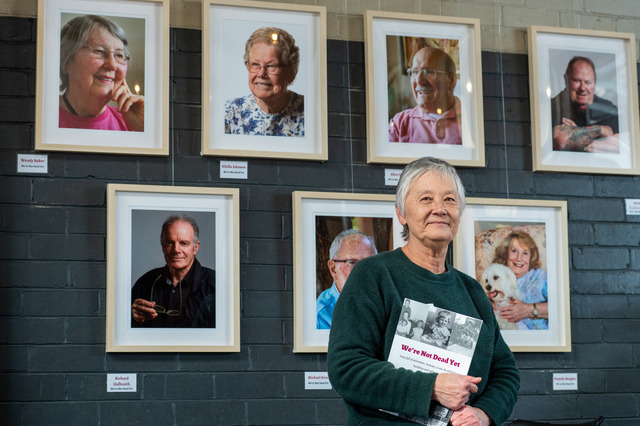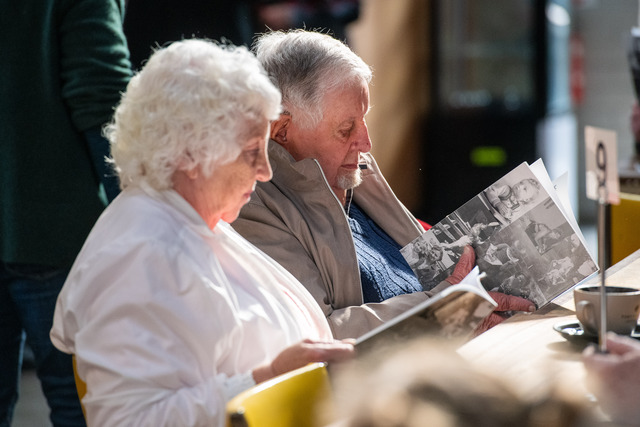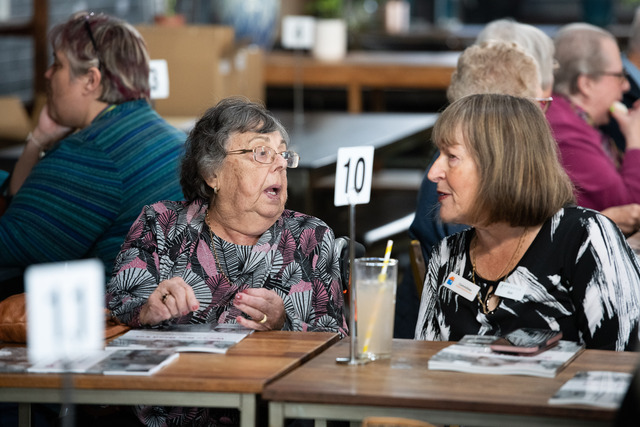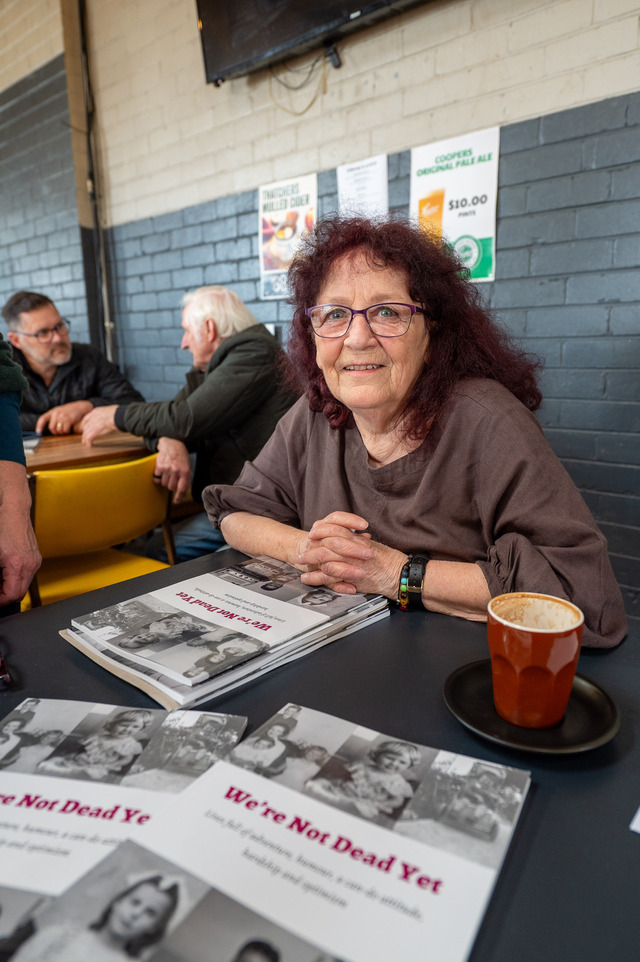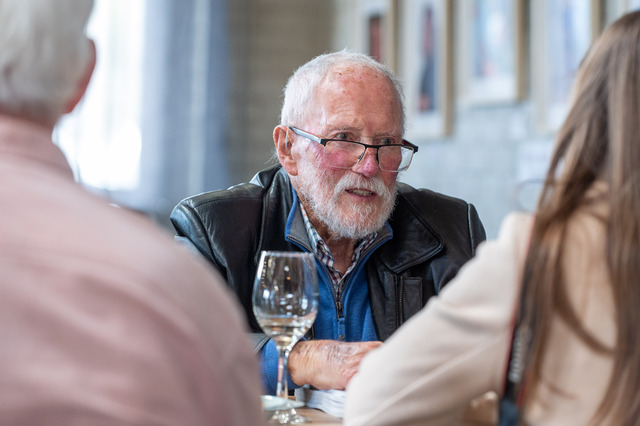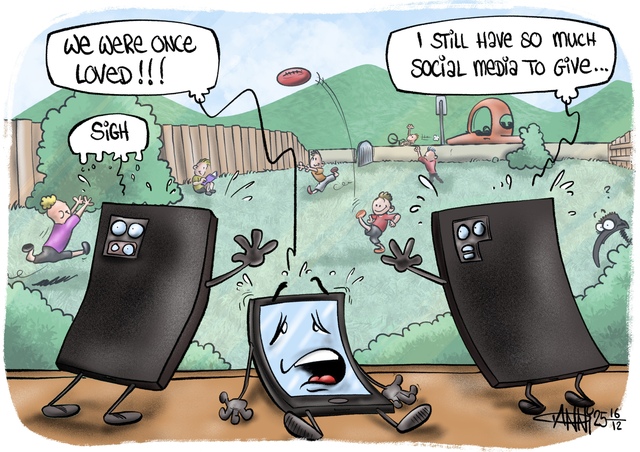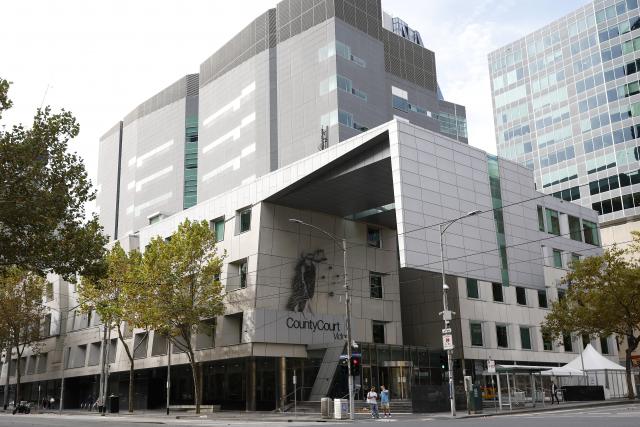The untold tales of Yarra Ranges residents, whose histories are rooted in stories of work, play, hardship and love, craft a vision of what the region was like decades ago.
Wanting to honour and give light to these nearly forgotten stories, the Lilydale Community House set out on a path to do just that, a little over 12 months ago.
Receiving funding from the Lilydale Revitalisation Board, the We’re Not Dead Yet project began.
On Tuesday 29 July, the finished product, a book of collected stories, officially launched.
“This came about through conversations I had with various older members of our community and realising how amazing and varied people’s lives have been and still are,” Community house coordinator Suyin Chan said.
“Some have had massive challenges along the way. All have lived very interesting lives. As we get older, we become more invisible in so many ways.
“I wanted to highlight the stories of a few and acknowledge their amazing lives, and hope that others will acknowledge them too. Too many people may assume that you haven’t done much in your life, and it’s far from the truth.”
From migration and setting up homes in the east, to growing up locally and sharing stories of clubs, groups and friendships that were integral during those formative years, every featured story was unique.
Vincenzina (Vincy) Borrelli shared one of those unique stories.
Born just before the onslaught of World War II in a small village in Italy, she didn’t meet her father until they reunited in Australia when she was nine years old.
He had left before her birth in 1938 to escape the potential call to serve in Europe.
“The whole of Europe was devastated, the whole of Italy was devastated,” Vincy said.
Arriving in Australia all those years later to a farm in Wandin East, life was entirely different for Vincy: the language, the distance from neighbours and outdoor toilets.
Attending school in Lilydale until the age of 12 and then having to take on caring responsibilities at home, Vincy tended to the farm and family, raising her younger sister until she married at 19.
Her husband, Charlie, migrated to Australia with sponsorship from her father.
After a stint in the city, the pair moved back to the then country town of Lilydale, setting up shop on Main Street with Charlie’s Fish Shop in the 1960s.
“It was much smaller back then, but we knew everyone in Lilydale,” she said.
“The kids used to come in and get five pence worth of chips and a potato cake, and we’d wrap it up in newspaper. That was before we knew how much bacteria were on newspaper.”
Charlie’s Fish Shop was a fixture of Lilydale, on the corner of Clarke Street, covered in signage and billboards, unmissable to a passerby. The duo operated the shop for nine years before opening a deli and sandwich bar instead.
Vincy said it was important to share even a small part of her story with the children of future generations, so they would understand what had come before them.
For Michael Kent, he “enjoyed the process immensely” of telling his life story.
An anecdote of the 1944 Beaumaris bushfires was clear in his mind.
“A friend of mine and I were playing down by the cliffs at Beaumaris and we saw all this smoke, so we thought ‘we’ll go see what that is’,” he said.
“There was a howling northerly wind and the next thing, we’re being chased by a bushfire. We ran like the devil to get away from it.”
The house his parents had been renting was lost, along with all their possessions, including a recently gifted Hornby electric train set – a rarity, especially during wartime.
Michael said all he had left were the clothes on his back. He still had the Red Cross blankets that were used at the relief centre up until a few years ago.
In 1953, the final year of his engineering diploma at Melbourne Technical College, Michael’s father decided to retire and hand the business he owned over to him.
Not completing his final exam, Michael stepped in to run and manage the sheet metal manufacturing factory in Fitzroy.
He married in 1955 and the pair spent a happy 61 years together, 58 of those as a married couple. Their first home together was in Blackburn North and slowly they moved further east.
After retirement and selling the Fitzroy factory, Michael ended up in Lilydale’s Tudor Village.
In 2013, his wife died of a two-year-long battle with a brain tumour. In the book, Michael states that he felt like life had come to an end for him as well.
But opening himself up to friendship and companionship with a fellow Tudor Village resident and widower allowed him to keep going.
Mount Evelyn’s Marg Quon tells of how she knew from an early age growing up in Colac that she “wanted what the boys had”, sparking her feminist ideals as a young girl.
She was the first in her parents’ families to finish high school and then go on to tertiary education, training to become a teacher herself.
Initially starting as a primary school teacher, then upskilling as a special education teacher, Marg went on to work as a project officer in drug education, taught community service, mental health and AOD studies at TAFE and worked as a teacher at the Tallyho Boys Home.
She faced immense hardship, first when she was pregnant with her second child, being held at knifepoint at Tallyho by one of the boys.
A week before her third child was born, tragically, Marg’s husband Terry died in a building site accident. She was 32.
Marg shared how she learned to put one foot in front of the other, because she had three little people relying on her, but it wasn’t without difficulty.
Her challenges in having to fight for a widow’s pension so young, without superannuation to fall back on and not being able to make choices about her own body as a woman fired her spirit as a feminist.
She joined small protests and marches calling for women to have rights over their bodies.
Activism was a major part of her life, joining the anti-conscription movement, having known people conscripted to serve in Vietnam.
For several years, her oldest son battled drug addiction. Her first insight into being shamed for this was during her tenure as a project officer in drug education for the department. She was fired for her son’s use of drugs.
When he sadly overdosed, Marg said in the book that it felt like the police victimised her and her family. This set her on a path to removing the stigma around families that are affected by drug and alcohol use and mental health.
With a fierce desire to live her life to the fullest, she said, “I refuse to accept that at 72 I have to stop doing things”.
That ignited her desire to take part in the We’re Not Dead Yet project.
“I was really feeling challenged about being older and running out of time in your life with so much more to do, because all this technology and internet shows me all this other stuff that’s available and I want to see the volcanoes in Iceland.
“It was a challenge of mortality, really, that I’m not dead yet, but what can I do, and then to have the chance to actually reflect on what I have done, it’s quite surprising what I have done.
“I was lucky to have gone to Afghanistan just as the Taliban followed me through, things like that that you just take for granted.”
The stories in We’re Not Dead Yet are a snippet of what people have experienced in their lives but they also stand as a reminder to never stop being curious about what someone has achieved in life.

